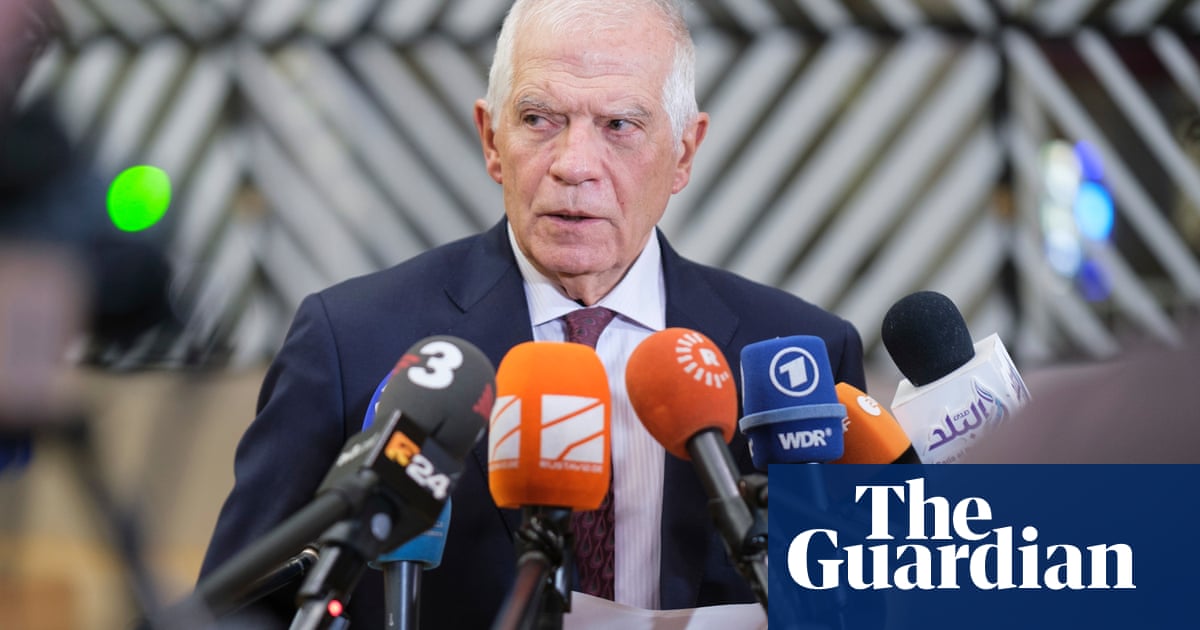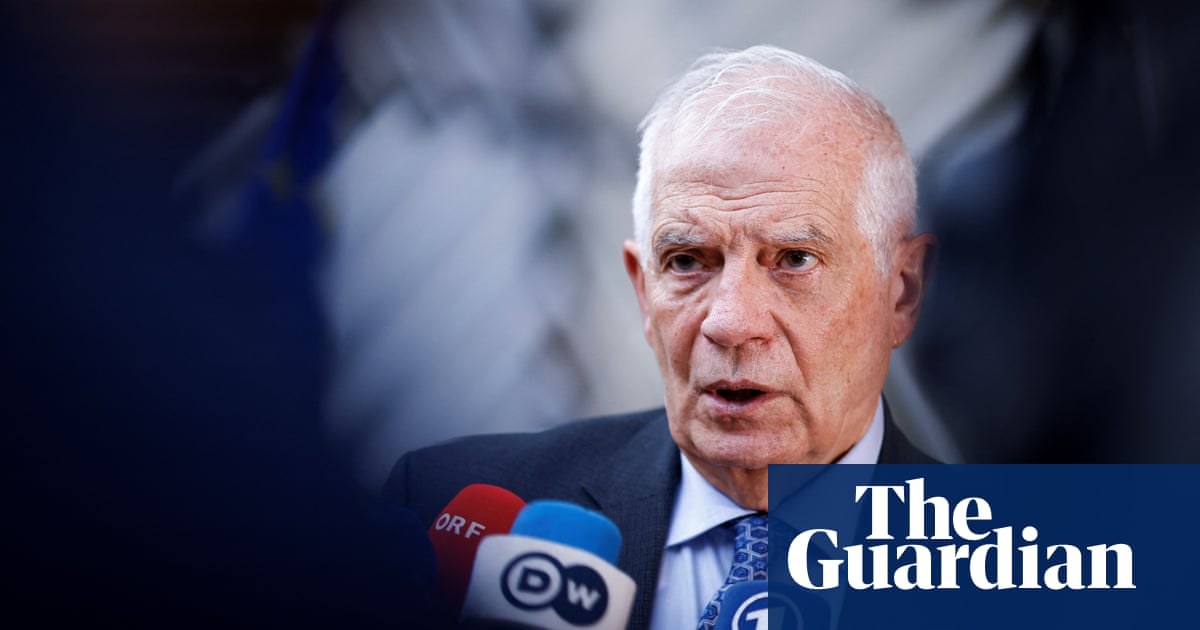
One of the EU’s most senior diplomats has criticised the Israeli foreign minister for not properly engaging with a summit in Brussels designed to pave the way for a peace plan in the Middle East.
Josep Borrell, the EU’s high representative for foreign affairs, told reporters Israel Katz had come to the meeting to present plans for an artificial island off the coast of Gaza and a railway to India, concepts that had nothing to do with the peace talks.
Borrell said: “We had had the pleasure of watching two very interesting videos, one about an artificial island project to serve as a port … and another one about a project to build a railroad line linking the Middle East with India, which also seemed to us to be very interesting.
“I think the minister could have made better use of his time to worry about the security of his country and the high number of deaths in the Middle East and the high death toll in Gaza.”
The EU foreign policy chief has said he is determined to pursue a two-state solution in the Middle East, whether Israel is ready to participate or not.
“Peace is a very general objective, nobody would say they are against peace; in our view we should stop talking about peace in the Middle East but talk about specifics, about the two-state solution,” he said. “If Israel does not want the solution, it is going to be difficult for them to take part … but it does not stop others taking part.”
His remarks came a day after the Israeli prime minister, Benjamin Netanyahu, reaffirmed a hard line against the establishment of any Palestinian state on the grounds it would pose “an existential danger” to Israel.
Alluding to Israel’s stated objective of annihilating Hamas in its three-month-old war in the Gaza Strip, Borrell told reporters: “What are the other solutions they have in mind? Make all the Palestinians leave? Kill all of them? … The way they are destroying Hamas is not the way to do it. They are sealing the hate for generations.”
Katz, and his Palestinian counterpart, Riyad al-Maliki, made separate appearances at the monthly gathering of EU foreign ministers, which was also being attended by counterparts from Saudi Arabia, Egypt and Jordan, and the Arab League secretary general.
Katz came to the conference asking for the EU to renew focus on the fight to free the estimated 130 people who were seized on 7 October by Hamas and remain hostages. “Our brave soldiers are fighting in very hard conditions for those two aims: to bring back our hostages and restore security for the citizens of Israel,” he said in a brief statement before attending the summit.
The talks centred on a 12-point discussion paper about establishing a two-state solution.
Netanyahu has sought to obstruct the establishment of a Palestinian state throughout his political career. Nevertheless, his rejection of any moves to establish a state when Israel ends its offensive against Gaza caused consternation and represented his sharpest rebuttal yet of US and EU foreign policy.
EU foreign ministers lined up to denounce the Israeli leader as they arrived at the Brussels summit.
The Irish foreign minister, Micheál Martin, said Netanyahu’s insistence there would be no two-state solution was unacceptable while Stéphane Séjourné, France’s new foreign and European affairs minister, described his remarks as worrying.
“All those who say they don’t want to hear about such a solution have not brought any alternative,” the German foreign minister, Annalena Baerbock, said.
The Jordanian foreign minister, Ayman Safadi, told reporters the war could no longer continue and that a two-state solution was the “only path”.
“We have engaged in over 30 years of process and look where that has got us,” Safadi said, referring to intermittent Israeli-Palestinian peace talks since the 1990s. “A moment of truth is upon us. Do we allow a radical racist agenda to dictate the future or come together and say the path is clear, we want peace for everybody?”
The EU paper does not offer any solutions or details but suggests that at a future peace conference participants should spell out “consequences” for both sides, depending on whether they accept or reject a plan approved by the gathering. It does not say what these consequences might be, although the EU has some areas of potential leverage.
The bloc is a major provider of economic aid to Palestinians and has a broad cooperation agreement with Israel that includes a free-trade area. Some officials have privately suggested the latter arrangement could be used to influence Israel.











